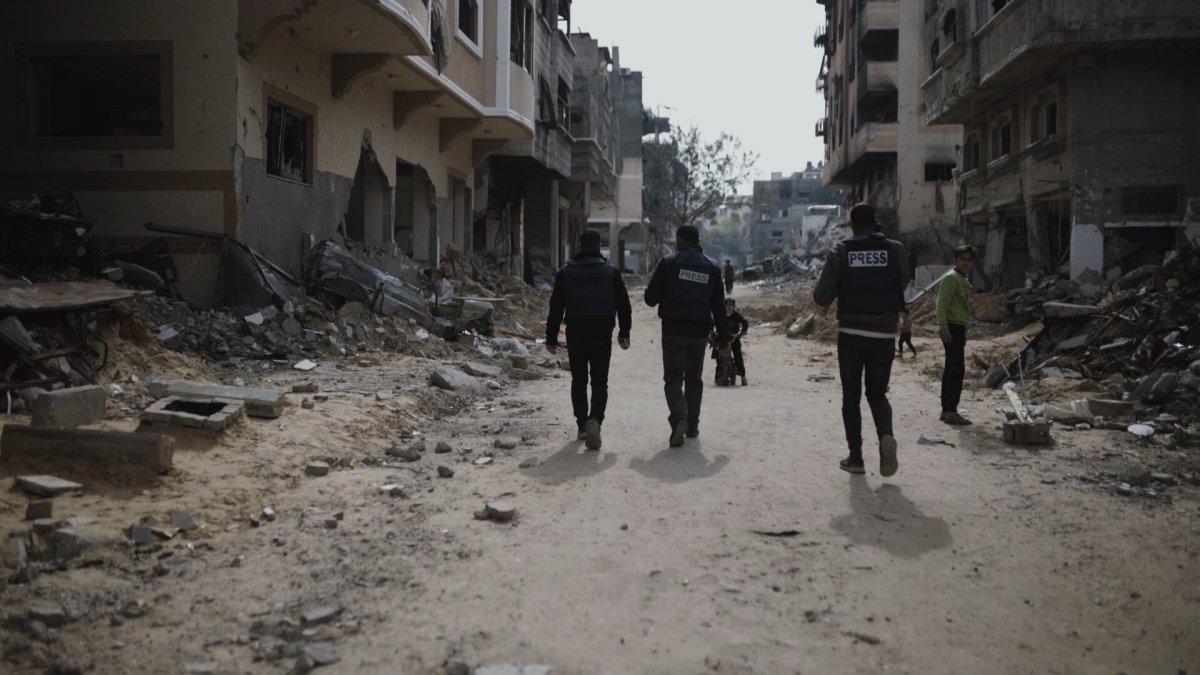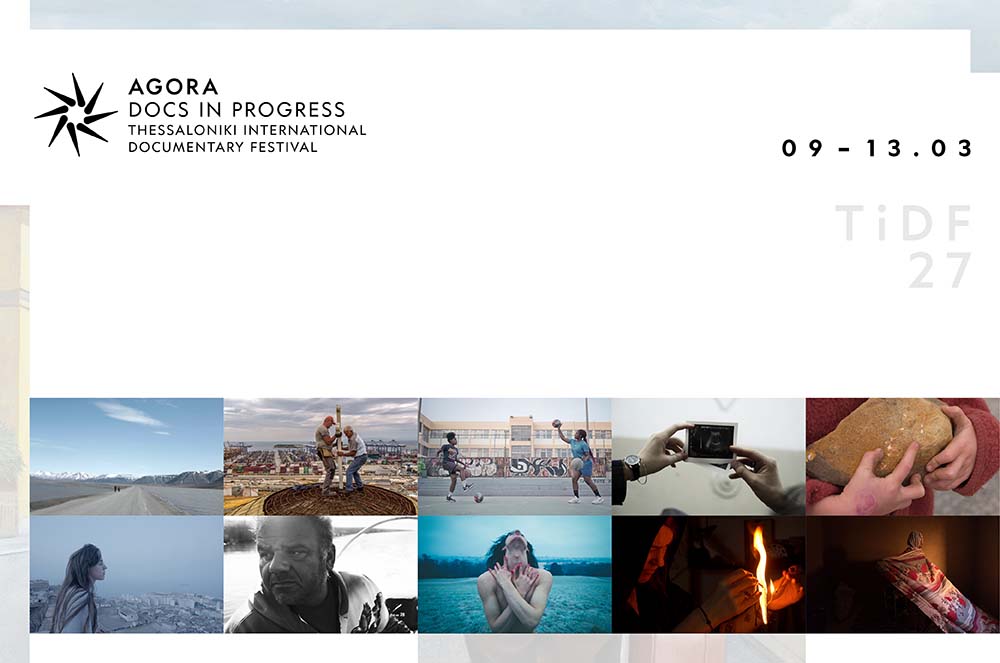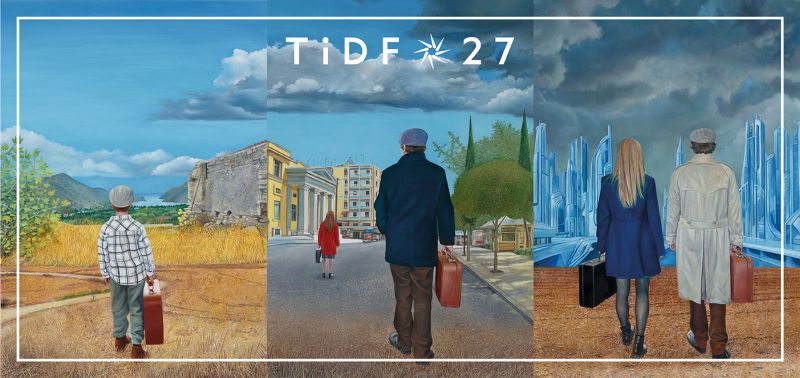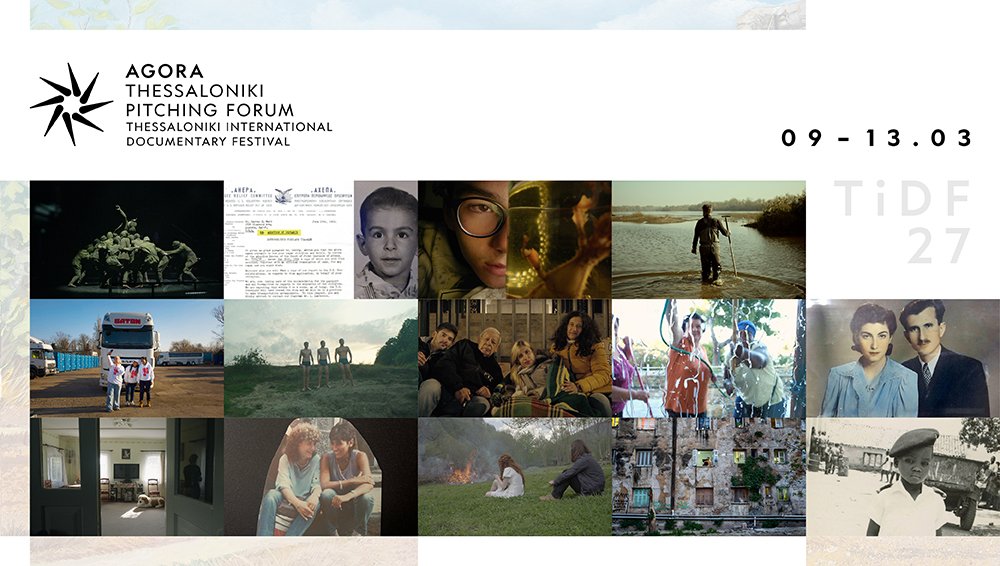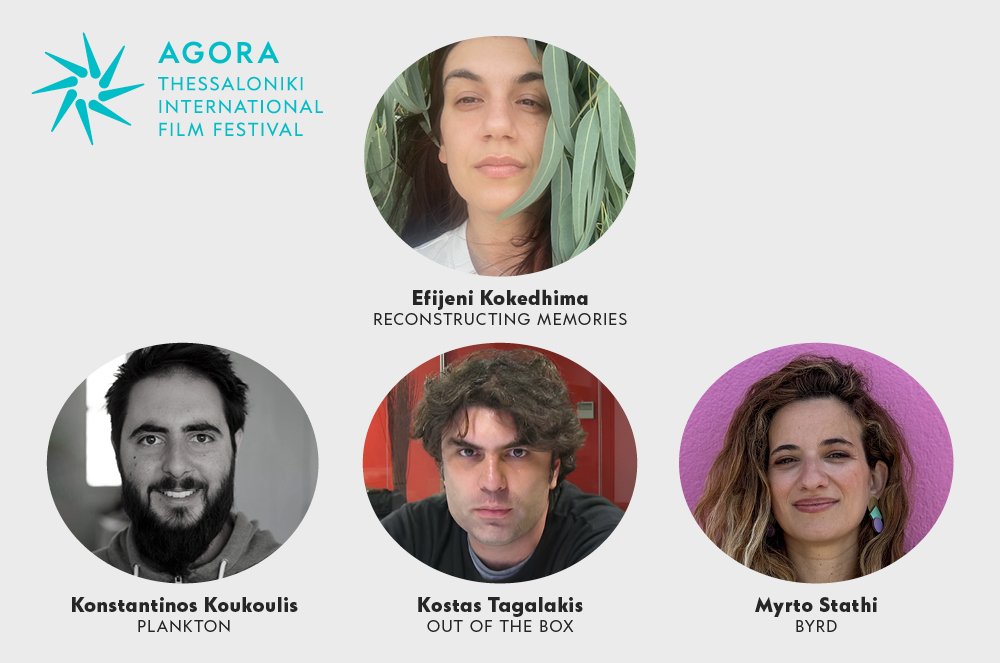TWO GENERATIONS OF GREEK DOCUMENTARY DIRECTORS ON THE SAME PANEL
Five Greek directors were on the panel of the press conference held on Friday, March 7th at the Olympion Renault theatre in the framework of the 5th Thessaloniki Documentary Festival - Images of the 21st Century. In particular, Giorgos Zervas, Theodoros Kalesis, Lakis Papastathis, Antonis Kasitas and Loukas Kuhtin spoke and exchanged opinions about their films, They tell me not to love you, Freddy, Syntagma Square, Manolis Hiotis, the street urchin who put cologne on the Greek song and Free citizens, respectively.
Lakis Papastathis began and spoke about his film Syntagma Square: “The film is based on the series ‘Paraskinio’ which has been running for 28 years on Greek television. “Paraskinio’ attempts to combine the experience of a filmmaker with television. About 150 directors have worked on it. Syntagma Square is based on a basic notion by Giorgos Seferis that, buildings can see as well as laugh and cry depending on historical events”.
It was Antonis Kasitas’ turn to speak about his film Manolis Hiotis, the street urchin who put cologne on the Greek song: “The research for the film lasted for five years but as they say, fortune favors the brave. In a forgotten chest in Pirgos, we were lucky to discover the first song ever written by Hiotis when he was 17. We didn’t want to focus only on the two decades when Hiotis was famous but on a lifetime retrospective beginning with his birth in a brothel. He was able to beat the odds and become successful with his music. When Hiotis was in Chicago, the great Jimmy Hendrix who was playing in an adjacent bar had said, ‘I’m not number one, Hiotis is!’”.
Giorgos Zervas took the stand and spoke about his film They tell me not to love you: “The film is a statement on Greek pop culture and in particular to its music. When the lower classes express their feelings the result is magical. The film is not a monograph but rather, an approach to the music of the Greek populations of Asia Minor. It’s a journey into that world and its objects and places. The film demonstrates the reposition from a brilliant past to a painful reality through political turmoil. Original performances from the period 1905-1907 can be heard throughout the film. I would like to point out that the way we approached this music (called Rebetiko) is very different from the usual modern commercialization in today’s Greek society”.
Loukas Kuhtin was very concise about his film Free Citizens: “I was filming in Aristotelous Square. There happened to be an arrest in front of me and so I filmed it. I was amazed by the fact that nobody paid any attention to the arrest or simply pretended not to notice”.
Finally, Theodoros Kalesis spoke about his film Freddy: “I isolated a part of daily life and made my film. I presented what I experienced through my film’s two main characters. I felt naïve and like a clown and I rediscovered my lost childhood. I believe, though, that everything revolves around Ulysses’ myth and the notion of drifting. I think that Freddy the Albanian was able to find more things in Greece than Teo the Greek was ever able to in his own country”.
At the end of the press conference Lakis Papastathis praised the work of the two young directors Theodoros Kalesis and Loukas Kuhtin saying that he found their films extremely interesting.








